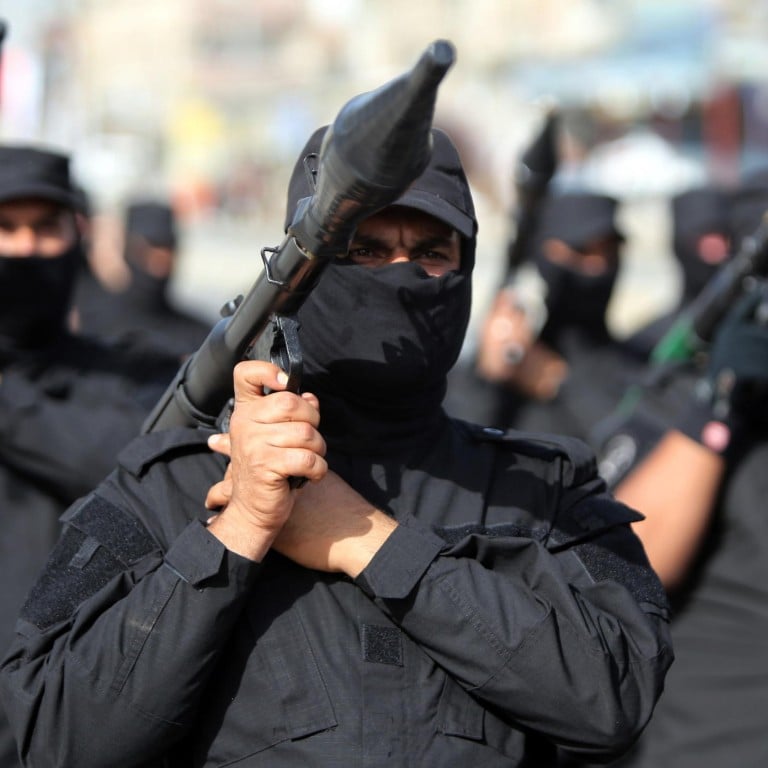
Sectarian showdown looms large as Shiite militiamen parade through Baghdad in show of force
Shiite militiamen parade through the streets of Baghdad and other cities in a show offorce as Sunni offensive edges ever closer
Thousands of heavily armed Shiite militiamen paraded through several Iraqi cities yesterday as Sunni militants seized two strategically located towns in what appeared to be a new offensive in the western Anbar province.

But while Maliki has come under mounting pressure to reach out to disaffected Kurds and Sunnis, the display of heavy weapons by the Shiite fighters indicated that forces beyond Baghdad's control may be pushing the conflict towards a sectarian showdown.
Sunni militants have controlled the city of Fallujah in Anbar and parts of the provincial capital of Ramadi since January. The vast Anbar province stretches from the western edges of Baghdad all the way to Jordan and Syria to the northwest. The fighting in Anbar has disrupted use of the highway linking Baghdad to the Jordanian border, a key artery for goods and passengers.
In Baghdad, about 20,000 men, many in combat gear, marched through the Sadr City district with assault rifles, machine guns, multiple rocket launchers, field artillery and missiles. Similar parades took place in the cities of Amarah and Basra.
The parades were staged by followers of Shiite cleric Muqtada al-Sadr, who once led a powerful militia that battled US troops and was blamed for some of the mass killing of Sunni civilians during the sectarian bloodletting that peaked in 2006 and 2007.
Many of the fighters wore black and some of the unit leaders carried Iraqi flags, while others held signs with messages including "We sacrifice for you, O Iraq", "No, no to terrorism", and "No, no to America".
Similar parades were held in large southern cities including Basra, Najaf and Kut, all in the Shiite heartland.
Police and army officials said the al-Qaeda breakaway Islamic State of Iraq and the Levant (ISIL), along with allied militants, seized Qaim and its crossing, about 320km west of Baghdad, after killing 30 Iraqi troops in clashes on Friday.
The officials said people were now crossing back and forth without hindrance.

Sunni militants have carved out a large fiefdom along the Iraqi-Syrian border and have long travelled back and forth with ease, but the control of crossings, like the one in Qaim, allows them to easily move weapons and heavy equipment to battlefields.
ISIL aims to create an Islamic state that will incorporate both Iraq and Syria, where the group has become a major force in the rebellion against President Bashar al-Assad in country's bloody civil war.
But in a sign that the broad alliance of jihadists and anti-government elements behind the offensive might be fracturing, internecine clashes killed 17 fighters in northern Iraq. They were killed in clashes on Friday evening between ISIL and the Army of the Men of the Naqshbandiyah Order (JRTN), another Sunni insurgent group, in militant-held territory in northern Kirkuk province.
The Sunni insurgents driving the recent offensive include a host of other groups, such as loyalists of executed dictator Saddam Hussein.
